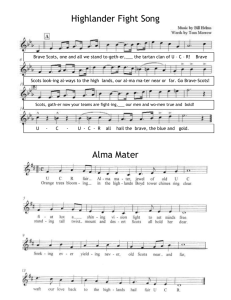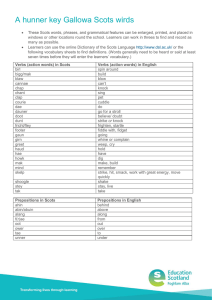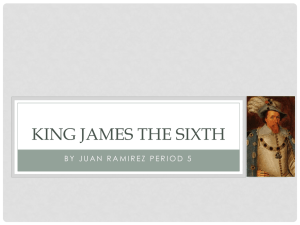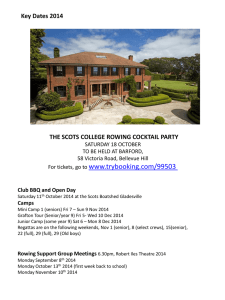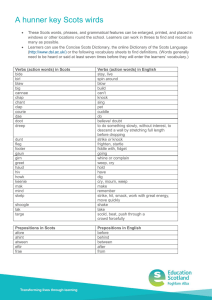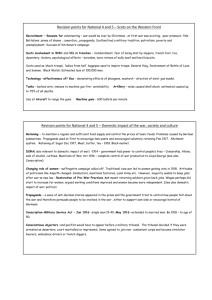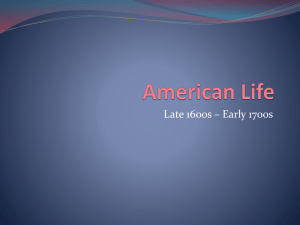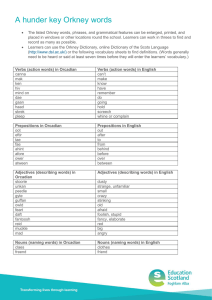Yin hundur Borders Scots words
advertisement
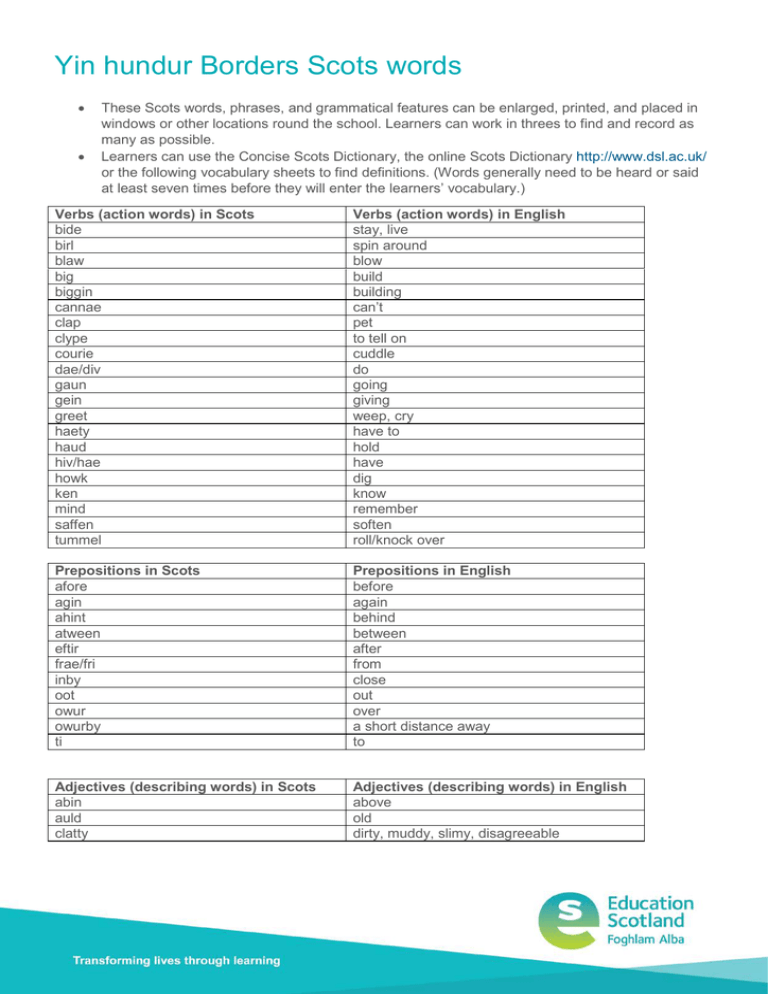
Yin hundur Borders Scots words • • These Scots words, phrases, and grammatical features can be enlarged, printed, and placed in windows or other locations round the school. Learners can work in threes to find and record as many as possible. Learners can use the Concise Scots Dictionary, the online Scots Dictionary http://www.dsl.ac.uk/ or the following vocabulary sheets to find definitions. (Words generally need to be heard or said at least seven times before they will enter the learners’ vocabulary.) Verbs (action words) in Scots bide birl blaw big biggin cannae clap clype courie dae/div gaun gein greet haety haud hiv/hae howk ken mind saffen tummel Verbs (action words) in English stay, live spin around blow build building can’t pet to tell on cuddle do going giving weep, cry have to hold have dig know remember soften roll/knock over Prepositions in Scots afore agin ahint atween eftir frae/fri inby oot owur owurby ti Prepositions in English before again behind between after from close out over a short distance away to Adjectives (describing words) in Scots abin auld clatty Adjectives (describing words) in English above old dirty, muddy, slimy, disagreeable Transforming lives through learning crabbit daft daunner derk drookit dreich feart gallus glaikit hap ither mad muckle oos scunnered shilpit sleekit snell stannin stoorie teemin wee Nouns (naming words) in Scots ba byre cloot claes craitur daud ferm freen gloamin guff glaur haaf hame heid hoose kirk kye laddie lassie pocky tatties toon wean wife, wifie yowe Transforming lives through learning bad tempered foolish, stupid wander dark drenched miserable afraid cheeky stupid cover other angry big bobbly fed up feeble sly Of weather: biting, keen, piercing, bitter, severe standing dusty crowded small Nouns (naming words) in English ball cowshed cloth clothes creature/person lump/piece farm friend dusk smell mud half home head house church cattle boy girl pouch potatoes town; farmstead; the Toon – Aberdeen child woman, married or not ewe Pronouns (short words that replace nouns) in Scots mi oor thaim thit whae whit ye, youse (pl) Pronouns (short words that replace nouns) in English my our them that who what, which you Numbers in Scots yin twae fower hundur Numbers in English one two four hundred Adverbs in Scots ayewis doon gey hie noo whair Adverbs in English always down very, somewhat, rather high now where Contractions in Scots husnae Contractions in English hasn’t Idiomatic expressions in Scots chuckin it doon insteido ower yur wulkies Idiomatic expressions in English raining a lot instead of head over heels Some features of Scots grammar and speech Negative forms of verbs are created by adding ‘nae’ at end – ‘cannae’, ‘couldnae etc. Present participles end in ‘in’ – never ‘ing’ (greetin, haiverin, slaiverin), so there is no need for an apostrophe unless it is an English word and the ‘g’ has been dropped in pronunciation. Scots uses older, short vowel sounds in words like ‘hoose’, ‘moose’ and ‘coo’ (like Norwegian) instead of ‘house’, ‘mouse’ and ‘cow’ (like English). In Scots, the plural of ‘year’ is ‘year’, not ‘years’. E.g. ‘siven year ago’. Transforming lives through learning
